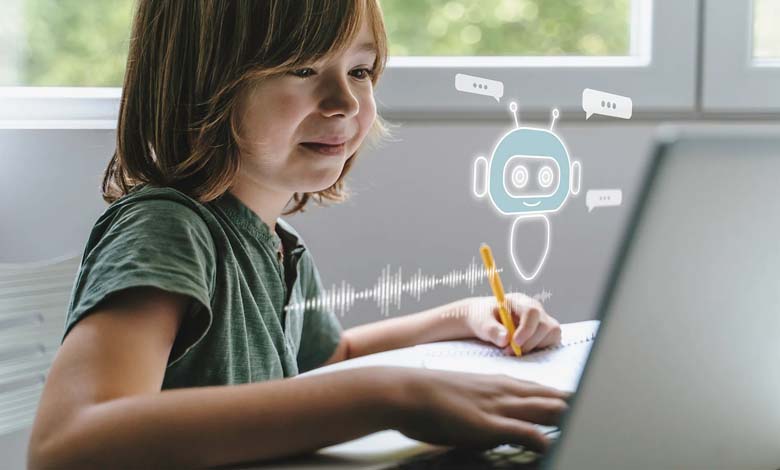Benefits and Risks: How Artificial Intelligence Affects Children

Artificial intelligence, in its simplest form, refers to machines or systems that exhibit intelligence similar to human intelligence by learning, reasoning, and making decisions based on data.
-
Artificial Intelligence: A “Factory” for Producing “Fake” Scientific Studies
-
Do patients trust artificial intelligence more than doctors?
Its potential to drive technological progress and transform industries has become very clear.
However, when it comes to our children, it’s natural to have concerns about how AI shapes their experiences and opportunities as they grow.
Thus, it’s essential to delve into how AI will impact children’s future lives and discuss both the positive and negative aspects that parents and educators should consider.
-
5 Things You Should Know About Artificial Intelligence
-
Artificial Intelligence on iPhones Will Not Be Free
By understanding the potential benefits and challenges of AI, we can better guide children and help them navigate this changing landscape with confidence and adaptability.
Benefits of Artificial Intelligence for Children
AI brings numerous positive effects to children’s lives, offering exciting opportunities for learning, creativity, and personal growth. It also holds the potential to greatly improve society’s quality of life in the future. Key benefits include:
-
Artificial Intelligence Will Reshape the Job Market by 2030
-
How will artificial intelligence change the shape of wars in the future?
- Enhanced Learning Experiences: AI-powered educational platforms adapt to children’s individual needs and learning styles, providing personalized lessons, exercises, and feedback. This helps children engage with new concepts and understand them more easily, ensuring a deeper understanding of subjects at their own pace.
- Creative Opportunities: AI-powered digital art tools enable children to express their artistic talents, allowing creativity to flourish. Similarly, AI-powered music composition programs help children create their own melodies, fostering musical exploration and expression.
- Improved Accessibility: AI technologies can enhance accessibility for children with disabilities by providing adaptive tools tailored to their specific needs. For example, AI-powered speech recognition and text-to-speech systems can enable children with speech impairments to communicate more effectively.
-
“United Airlines” Utilizes Artificial Intelligence for Passenger Comfort
-
Europe is concerned about the future of its children due to artificial intelligence
- Improved Medical and Psychological Diagnosis: Today’s children will benefit from enhanced medical interventions, one of the most impactful areas where AI will have a major influence in the coming decades.
- Immersive Augmented and Virtual Reality Experiences: AI-powered AR and VR experiences can provide interactive, immersive learning. These allow children to explore historical landmarks, scientific concepts, or virtual museums, enriching their understanding and curiosity without the need for long trips.
- Language Learning Assistance: AI-powered language learning tools can help children develop language skills through interactive exercises, pronunciation feedback, and enhanced language experiences. These tools make language learning more engaging and effective, fostering communication and cultural understanding.
-
Death Calculator: An Artificial Intelligence Tool Predicts Your Date of Death
-
Why did the international monetary fund warn against artificial intelligence?
- Virtual Mentors: AI-powered virtual mentors can inspire and motivate children. These virtual characters or chatbots provide guidance, encouragement, and positive reinforcement, helping children build confidence, set goals, and develop life skills.
Risks of Artificial Intelligence for Children
While AI brings many benefits to children’s lives, it’s understandable for parents to have concerns about its potential drawbacks. Key risks include:
-
New AI Models Capable of “Thinking”
-
Artificial intelligence’s ‘godfather’ reveals why he left Google
- Privacy and Data Security: One common concern with children’s use of AI is the collection and use of personal data. Parents must choose AI tools and platforms with robust data protection measures and educate children on the importance of safeguarding personal information.
- Screen Time and Digital Well-being: The increasing presence of AI in children’s lives raises concerns about excessive screen time and its impact on their well-being. It’s important to set healthy boundaries with technology and balance online activities with offline experiences such as physical activities and social interactions.
-
Study: Humans May Accept “White Lies” from Robots
-
5 Ways to Control Your Smart Home from Your Computer
- Information Evaluation: Teaching children to develop critical thinking skills is essential. They need to learn how to question and evaluate the information they encounter online, including AI-generated content, to make informed decisions and navigate the digital landscape responsibly.
In conclusion, today’s children are already using AI, and they will grow up familiar with its capabilities. With the guidance of parents and educators, they will quickly understand how to leverage it for entertainment, career ambitions, and business endeavors.












